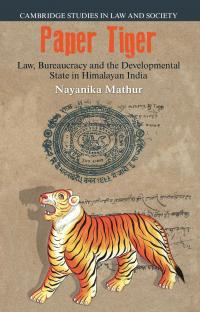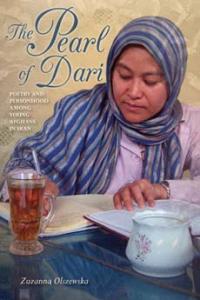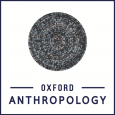School Newsletter 2018 - News and Awards

COMPAS - The MIgration Observatory and Madeleine Sumption
In recognition of the important contribution the Migration Observatory has made to informing debates on international migration and public policy since its launch in 2011, Madeleine Sumption and Carlos Vargas-Silva received an ESRC 2017 Celebrating Impact Prize for Outstanding Impact in Society. In addition, The Global Exchange on Migration team received a 2017 Community Integration Award in the Research Champion category, for their Safeguarding Children from Destitution Toolkit, developed in partnership with the No Recourse to Public Funds (NRPF) network. More on COMPAS here and the Migration Observatory here.
Finally, in the New Year’s Honours 2018, Madeleine Sumption was appointed MBE for services to Social Science. Madeleine said: ‘I’m delighted that the work of the Migration Observatory has been recognised in this way. Migration has been one of the defining issues in the UK’s public debate in the past few years and the whole team has worked incredibly hard to make high-quality evidence accessible to the public, the media, policymakers, and civil society.’
Elizabeth Hallam awarded the Wellcome Medal for Anthropology
In the spring of 2018, Dr Elizabeth Hallam, a Research Associate of SAME and Hon. Editor JRAI, was awarded the Wellcome Medal for Anthropology as Applied to Medical Problems, 2016. Elizabeth received the award for her work including her book Anatomy Museum: Death and the Body Displayed (Reaktion). The medal and prize are given by the Wellcome Trust and they are awarded biennially, by the Royal Anthropological Institute, for published work that makes a significant contribution to research in anthropology as applied to medical problems.

Nayanika Mathur won the Sharon Stephens Award from the American Ethnological Society (AES)
Nayanika Mathur, our new Associate Professor in the Anthropology of South Asia, who has won the Sharon Stephens Award from the American Ethnological Society (AES) for her first book, Paper Tiger: Law, Bureaucracy and the Developmental State in Himalayan India (Cambridge, 2015).
The prize citation states:
Paper Tiger uses the sensational story of a man-eating big cat on the run to tell a much more subtle story of the everyday life of law and bureaucracy on the Himalayan borderland. It reveals the complexity of bureaucratic practice as it unfolds in its most ordinary everyday embodiment—in the way government officials read and write letters, hold meetings, file, produce and circulate documents, reflect on their official postings, and the spaces officials occupy. The point of it all is to demonstrate the myriad ways in which the state presents itself through and by the laws it intends to implement.
The committee was impressed with the detailed account of paper and its circulation, which works to reveal the unintended consequences of reforms, the problems with implementing new programs and the inability of state officials to act when faced with crises. The book was simply a joy to read: rich, lively, and theoretically compelling. Paper Tiger pushed us to rethink how the state operates in India and beyond.
The committee felt that a major strength of this book was that its theories can and (we believe) will be applied to a vast number of ethnographic contexts. Although it presents a unique explanation for what progressive laws can and cannot do in post-liberal India, the way Mathur theorizes the Indian state’s effort to render itself more transparent and accountable will be helpful to many anthropologists as they wrestle with the double-edged effects of reform in a variety of settings.
In the way Paper Tiger shifts the frames of the debate on state failure and opens up a fresh, new understanding of the workings of the contemporary state governance, we deemed it innovative, theoretically astute, ethnographically rich—and thus an ideal fit for the Sharon Stephens Book Prize.
Zuzanna Olszewska won the 2017 MES Book Award for The Pearl of Dari

Dr Zuzanna Olszewska, Tutorial Fellow in Archaeology and Anthropology at St John’s, won the 2017 MES Book Award from the American Anthropological Association. The Middle East Section of the American Anthropological Association awarded Zuzanna the prize for her recent book The Pearl of Dari: Poetry and Personhood Among Young Afghans in Iran (Indiana University Press).
Commenting on their choice, they said: ‘Interspersed with poetry that is used as ethnographic data and analyzed as literature, the book is rich, original, and beautifully written. For a work that makes significant contributions to so many different topics in anthropology – poetics, refugees, gender, political Islam, and more – it is remarkably modest in presentation. The analysis unfolds through intimate stories, readings of poems, descriptions of lives and events. The arguments are clear and also presented with great subtlety. Providing an account of the lived experiences of people in this lesser-known refugee population in the Middle East is a significant contribution on its own; Pearl of Dari does this and so much more.’
Zuzanna specialises in the ethnography of Iran and Afghanistan, with a focus on Afghan refugees in Iran, the Persian-speaking Afghan diaspora, and the anthropology of literature and cultural production. The Pearl of Dari examines Afghan refugee life in Iran through the circle of poets and intellectuals who make up the ‘Pearl of Dari’ cultural organisation. Dari is the name by which the Persian language is known in Afghanistan.

Laura Fortunato
Laura Fortunato, Associate Professor in Evolutionary Anthropology, has been awarded a Project TIER (Teaching Integrity in Empirical Research) Fellowship 2018-2019 to support ongoing work relating to research reproducibility. This is linked to the Reproducible Research Oxford project which Laura leads. Laura delivered a number of invited talks and training linked to this project over recent months. You can read more about the Reproducible Research Oxford project here.
Talks
In March, Professor Stanley Ulijaszek took part in a Nobel Prize Dialogue Tokyo panel on the obesity epidemic. Stanley was part of a panel entitled 'What We Eat and Why? Anthropological, Historical and Cultural Reasons' with Johann Deisenhofer and Claude Fischler. He also featured on the 'The Obesity Epidemic' with Sir Tim Hunt, Marion Nestle, and Nobuo Yoshiike. The panel is available to watch here.
In December 2017, Dr Susana Carvalho, Associate Professor in Palaeoanthropology, took part in a Symposium at the UNESCO headquarters in Paris. The event focused on understanding biodiversity and its challenges.



